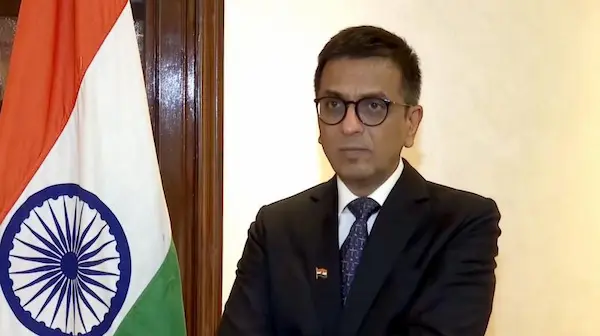
The Supreme Court admin has urged the Centre to reclaim the official residence from former CJI D.Y. Chandrachud
The Letter That Stirred the Bench: SC Admin’s Unprecedented Move
On July 1, 2025, the Supreme Court administration sent a formal letter to the Ministry of Housing and Urban Affairs (MoHUA), requesting the immediate repossession of Bungalow No. 5, Krishna Menon Marg the official residence of the Chief Justice of India. The occupant? Former CJI D.Y. Chandrachud, who retired in November 2024.
Table of Contents
The administration cited Rule 3B of the Supreme Court Judges (Amendment) Rules, 2022, which allows a retired CJI to retain a Type VII bungalow for up to six months post-retirement. However, the Krishna Menon Marg residence is a Type VIII bungalow, reserved exclusively for the sitting CJI. Chandrachud’s extended stay, which continued past May 31, 2025, was deemed a breach of protocol.
The letter emphasized that the six-month grace period expired on May 10, and that no further extensions were permissible. It urged the Centre to act “without any further delay,” marking a rare instance of the judiciary publicly seeking action against one of its own.
A Personal Plea: Chandrachud’s Response and the Human Angle
In response, Justice Chandrachud issued a heartfelt explanation. He revealed that his two adopted daughters suffer from severe comorbidities, including nemaline myopathy, a rare genetic disorder. Their condition requires specialized care at AIIMS, and the search for a suitable, wheelchair-accessible home had proven difficult.
He clarified that he had already been allotted Bungalow No. 14 on Tughlak Road, but the property had been uninhabitable due to years of disuse and required extensive renovation. Compounding the delay were pollution-related construction bans under GRAP-IV, which stalled the work.
Chandrachud emphasized that he had kept the SC administration informed throughout and had even paid the required license fees. “It is a matter of just a few days,” he said, adding that his luggage was already packed and he would move the moment the new residence was ready.
His statement struck a chord with many, highlighting the emotional and logistical challenges faced by public servants transitioning out of high office especially when family health is involved.
Between Law and Compassion: What This Means for Judicial Integrity
This episode has ignited a broader debate on judicial accountability, housing entitlements, and human dignity. On one hand, the SC administration’s stance underscores the importance of upholding institutional norms and ensuring that official residences are not misused. On the other, Chandrachud’s situation reveals the gaps in policy flexibility when personal exigencies arise.
Interestingly, both Justice Sanjiv Khanna and Justice B.R. Gavai, who succeeded Chandrachud as CJIs, chose not to occupy the Krishna Menon Marg bungalow, opting instead to remain in their previous accommodations. This inadvertently allowed Chandrachud to stay longer without displacing a sitting CJI.
Yet, the SC’s July 1 letter signals a shift perhaps a desire to reassert procedural discipline amid growing public scrutiny. It also raises questions about whether existing rules adequately account for humanitarian exceptions, especially for retired officials with unique family needs.
Final Thoughts:
This isn’t just a story about a bungalow. It’s about the intersection of law, empathy, and public perception. As Chandrachud prepares to vacate, the episode leaves behind a trail of questions: Should rules be absolute? Or should they bend just slightly when life demands it?
Stay updated with the latest news on Rapido Updates. Keep yourself updated with The World, India News, Entertainment, Market, Automobile, Gadgets, Sports, and many more